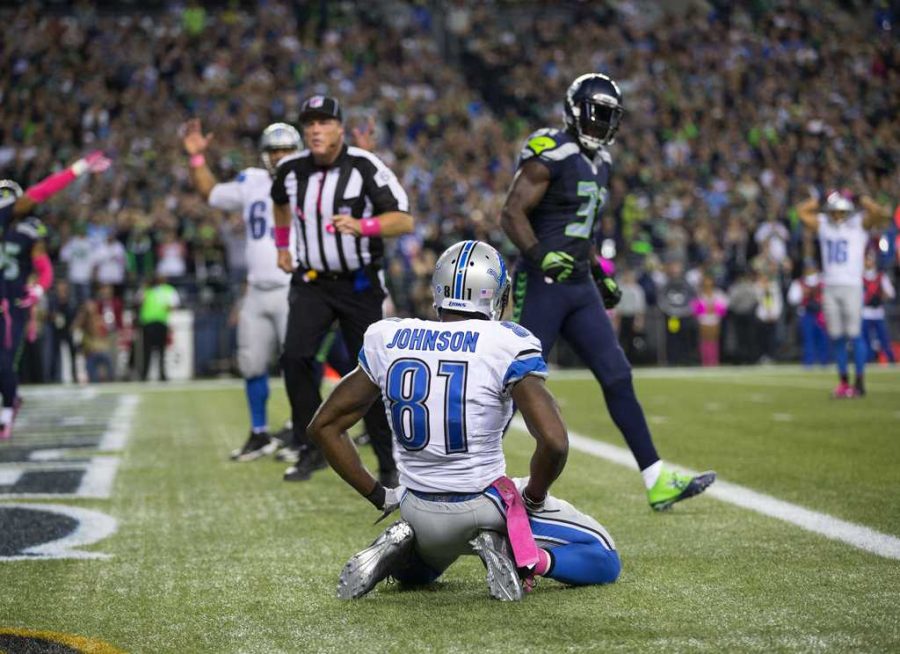Not many people like Bill Belichick — even Sports Illustrated said so.
But there’s one thing Belichick has been pining for — and no, it’s not advanced spy equipment or discrete ball-deflation tools.
During the 2014 NFL winter meetings, the longtime New England Patriots head coach pitched a rule change that would deem every play — namely penalties — reviewable by instant replay, striking the inane limitations that are currently in place.
Monday night’s game between the Seattle Seahawks and Detroit Lions illustrated the need for this change. With his team trailing by three points and just over a minute remaining in the game, Detroit wide receiver Calvin Johnson fumbled at the goal line. As the ball rolled farther from the goal line, Seattle linebacker K.J. Wright swatted the ball out of the back of the end zone, not wanting to risk fumbling the recovery. Back judge Gregory Wilson ruled it a touchback, and Seattle’s fans rejoiced, as the turnover essentially sealed a last-second victory for Seattle.
However, according to Dean Blandino, the NFL’s vice president of officiating, Wright’s actions, which were clearly and admittedly intentional, should have constituted a penalty for an “illegal bat.” The proper ruling, according to Blandino, would have given the Lions the ball back at the goal line, with a great chance at grabbing the lead and winning the game.
Instead, an official’s botched call decided the game, sending the Lions home 0-4.
Like Johnson did fumbling the football, Wilson also made a mistake in a crucial spot. The issue in this circumstance is not human error. The issue is meaningless and avoidable inconsistencies in the NFL’s reviewing of plays procedure.
It’s baffling that certain mistakes referees make are eligible for a second look and others aren’t. If a coach notices a clear hold and a referee misses it, why is that any less viable of a play to challenge than seeing if a player was potentially bobbling a football while trying to drag a second toe in bounds?
Plenty of teams have fallen victim to blown calls in bigger spots than a week-four contest involving 1-2 and 0-3 teams. The addition of reviewing penalties could shift who wins Super Bowls. Maybe replay officials would have seen Jimmy Smith holding Michael Crabtree in the end zone in Super Bowl XLVII, and maybe the currently sputtering Colin Kaepernick has an inexplicable Super Bowl ring.
Some might not want that type of judgement call to be subject to instant replay review. But there’s no real sensible rationale, as anyone can potentially oppose judgement calls on penalties. These plays are crucial game changers, potentially just as seismic as a turnover or incomplete pass and catch debates.
Adding more plays to the scope of review won’t slow down a game. Coaches will still have two challenges a game and will still have to use them just as wisely. It won’t hurt any viewership numbers or in-game attendance marks. It won’t make Aaron Rodgers’ spiral any less beautiful. There’s no downside to increasing the ability of referees to get more calls right.
With inexplicable calls like this arising in games of greater significance in the past, Batgate — as pundits have uncreatively dubbed it — seems to be a potential tipping point for change and not just another blip on the radar.


